It's "a violation of Judicial Code of Conduct" – "Utterly surprised" Asare on Opuni trial judge's Akufo-Addo endorsement
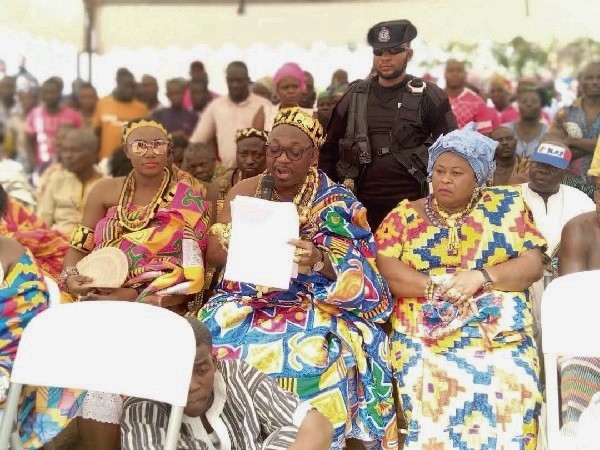 Paramount Chief of the Nyagbo Traditional Area, Torgbui Ashui Nyagasi V (Justice Clemence Honyenuga)
Paramount Chief of the Nyagbo Traditional Area, Torgbui Ashui Nyagasi V (Justice Clemence Honyenuga)
It is a “violation of the Judicial Code of Conduct” for a judge of the Superior Court to have endorsed a political candidate ahead of the 7 December 2020 general elections, Professor Stephen Kwaku Asare, a D&D Fellow in Public Law and Justice at Centre for Democratic Development (CDD-Ghana), has said.
The KPMG Professor in accounting at the Fisher School of Accounting, who is better-known in Ghana as a public intellectual and scholar-activist, made the comment in reference to a report by the state-owned Daily Graphic that the Paramount Chief of the Nyagbo Traditional Area, Torgbui Ashui Nyagasi V (known in judicial circles as Justice Clemence Honyenuga), the judge sitting on the case between the state, on the one hand; and the former CEO of the Ghana Cocoa Board (COCOBOD), Dr Stephen Opuni and businessman Seidu Agongo, on the other hand, had endorsed President Nana Akufo-Addo’s second term bid – in his capacity as a chief.
Below is a verbatim quote of Torgbui Ashui Nyagasi V (Justice Clemence Honyenuga):
"We wish to congratulate you for the excellent manner you are governing this dear country of ours, Ghana, and the significant gains made in the economy in your first term. It is true that you have won high admiration, not only in Africa but also in advanced democracies.
"Your flagship programmes, like the Free Senior High School, Planting for Food and Jobs, which has increased food production and has even led to exports; One District-One Factory, among others, has increased food production and has improved upon the standard of living of many Ghanaians.
"Indeed, for special mention is the Free SHS which has broken boundaries and has greatly bridged the gap between the rich and the poor. This programme has also broken the record which was held by the first President of the Republic of Ghana, Dr Kwame Nkrumah, who gave free education to our brothers and sisters in the northern part of Ghana.
"Your Free SHS programme is unprecedented in the history of Ghana, in a first term, as it covers the whole country. We, in this district, have equally benefitted and we say ‘ayekoo’ to You Excellency and may God and our ancestors shower their blessings on you, give you longer life and deeper thoughts to move this nation forward.
"It is our hope that with your vision and the gains made in your first term, Ghanaians may consider giving you another four year".
The paper also reported him as imploring President Nana Akufo-Addo to ensure that the forthcoming 7 December elections were peaceful.
However, Prof Asare, whose contributions and activism within the legal and constitutional fraternity – including as plaintiff in a number of precedent-setting cases before the Supreme Court of Ghana – are helping to push the frontiers of governance and the rule of law, particularly in the area of constitutional law and practice, vented on social media, thus: “I was utterly surprised to read that a judge of the superior court has publicly endorsed a candidate for political office in clear violation of the judicial code of conduct”.
“Of course”, he noted, “We do not take our laws and codes seriously but judges should do a little better”.
“128/1820 is a bona fide scam and sham”, he asserted on his Facebook wall.
Rule 6 of the Code of Conduct for Judges and Magistrates, titled ‘Political and quasi-political activity’, states: “A judge should refrain from political activity inappropriate to his judicial office”.
Section A of Rule 6, which is in reference to the political conduct of judges, in general, says: “1. Notwithstanding Article 55(2) of the 1992 Constitution of Ghana, a judge or a candidate for appointment to judicial office should not: (a) Act as a leader or hold an office in a political organisation; (b) Publicly endorse or publicly oppose another candidate for political office; (c) Make speeches on behalf of a political organisation; (d) Attend political gatherings; or (e) Solicit funds for a political organisation or candidate, or purchase tickets for political party dinners or other functions”.
Section C of Rule 6 of the Code of Conduct for Judges and Magistrates, which deals with ‘Permissible Political Activity for Incumbent Judges’, state that: “A judge shall not engage in any political activity except (1) on behalf of measures to improve the law, the legal system, or the administration of justice; or (2) as expressly authorised by law”.
Also, Ghana’s 1992 Constitution bars chiefs from taking part in partisan politics.
As far as the chiefs are concerned, Section (1) of Article 276 states: “A chief shall not take part in active party politics, and any chief wishing to do so and seeking election to Parliament shall abdicate his stool or skin.”
Section (2) of the same article, however, says: “Notwithstanding clause (1) of this article and paragraph (c) of clause (3) of Article 94 of this Constitution, a chief may be appointed to any public office for which he is otherwise qualified.”
The Opuni-Agongo case, which has been cited on several public platforms, among a plethora of others by President Nana Akufo-Addo, who is seeking a second term, is presided over by Justice Honyenuga, a Court of Appeal judge with additional responsibility as High Court Judge.
Dr Opuni and Mr Agongo, the CEO of Agricult Ghana Limited, are on trial for their alleged engagement in acts that resulted in a financial loss of GHS271.3 million to the state in a series of fertiliser deals.
They have been charged with 27 counts, including wilfully causing financial loss to the state, contravention of the Public Procurement Act, defrauding by false pretence, money laundering and corruption of a public officer.
The two have pleaded not guilty to all the charges and are on self-recognisance bail of GHS300,000 each.
Source: Classfmonline.com
Trending News
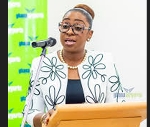
Ghana Airport Company MD to appear before OSP today
03:46
President Mahama orders nationwide integration of new security and E-gate systems at airports and borders
12:09
Ghana must intentionally build indigenous agribusiness icons - Agri-Impact CEO
17:07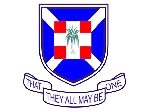
C/R: Presbyterian Minister urges Ghanaians to embrace customs, culture and traditions
14:18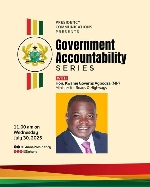
Roads Minister unveils Mahama’s road agenda at Gov't Accountability Series
09:09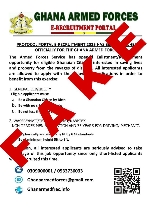
Defence Minister dismisses viral GAF e-recruitment letter
05:26
Police uncover international car theft syndicate smuggling stolen vehicles into Ghana
11:52
Ghana donates 40 metric tons of cocoa products to Palestine amid Gaza humanitarian crisis
15:34
O/R: 846 final-year SHS students set to return after Nkwanta clashes
13:53
MoH pays salaries of 321 pharmacist interns, assures rotation nurses and allied health interns of imminent payment
08:44



